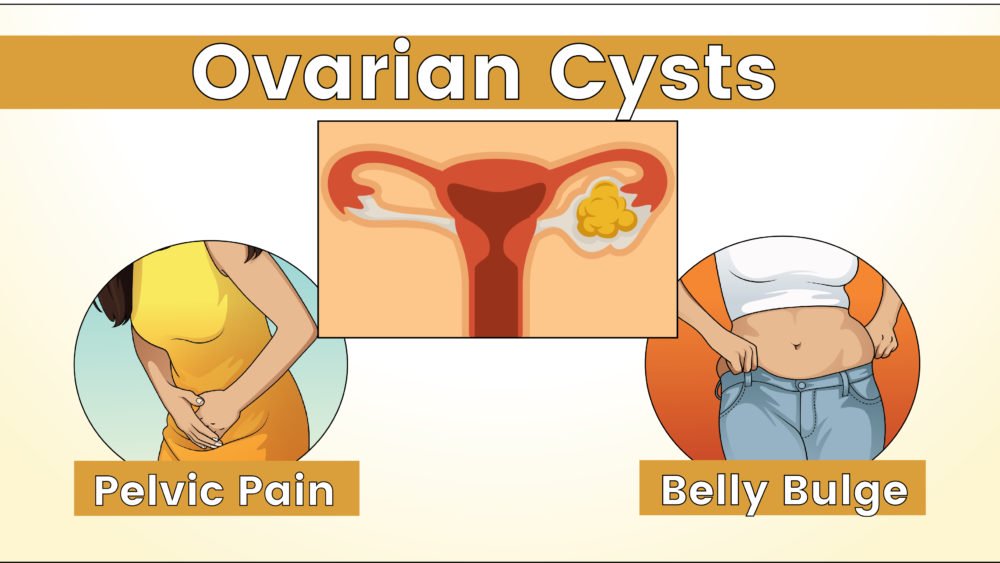Ovarian Cyst Removal in Cyprus
Search and Compare the Best Clinics and Doctors at the Lowest Prices for Ovarian Cyst Removal in Cyprus

Find the best clinics for Ovarian Cyst Removal in Cyprus
No clinics available
Ukraine offers the best prices Worldwide
Price: $ 714

- Home
- Cyprus
WHY US?
At Medijump, we're making medical easy. You can search, compare, discuss, and book your medical all in one place. We open the door to the best medical providers worldwide, saving you time and energy along the way, and it's all for FREE, no hidden fees, and no price markups guaranteed. So what are you waiting for?

Free

Best Price

Widest Selection

Risk-Free
What you need to know about Ovarian Cyst Removal in Cyprus

Ovarian cyst removal is a surgical procedure performed on ovarian cysts – fluid-filled sacs that grow in or on the ovaries. It is typically performed when the cyst is causing such symptoms as Bloating and Pelvic pain. Ovarian cysts normally develop as a result of the menstrual cycle and other types of cysts are less common. The procedure can be done through laparoscopic surgery (minimally invasive), but in some cases, it is done through an open surgery when a larger cut is required.
What does a Ovarian Cyst Removal Procedure Involve?
Both open surgery and laparoscopic surgery are performed under general anesthetic. With laparoscopic surgery, your surgeon will make small incisions in your abdomen to insert a small instrument into your abdomen to remove the cysts. With open surgery, your doctor makes a large incision in your abdomen; they may also remove the ovaries and uterus if the cyst is cancerous.
How Long Should You Stay in Cyprus?
You may be required to stay in the hospital for one to two days. However, some patients are discharged on the same day of the surgery. Plan to stay in Cyprus for at least seven days for the initial recovery and to attend follow-up check-ups and for your surgeon to remove the stitches.
What's the Recovery Time for Ovarian Cyst Removal Procedures in Cyprus?
The recovery period after laparoscopic surgery is a lot shorter than open surgery, you may be able to get back to work after a week and return to your normal routine in 2 weeks. After open surgery, it may take up to 6 weeks until you can go back to your normal routine.
What sort of Aftercare is Required for Ovarian Cyst Removal Procedures in Cyprus?
You are not allowed to do any strenuous exercises until you are fully recovered, but you should take several 10 to 15 minutes short walks in the first few days. Your surgeon will give you instructions that include diet and caring for your healing wounds.
What's the Success Rate of Ovarian Cyst Removal Procedures in Cyprus?
The success rate for ovarian cyst removal is known to be high. However, you need to be aware of the risks and side effects of the procedure, including swelling, infection, blood clots, and damage to other organs. Laparoscopic surgery is known to be a lot safer and has fewer complications.
Are there Alternatives to Ovarian Cyst Removal Procedures in Cyprus?
If the ovarian cyst is not causing any symptoms, your doctor may advise you to simply keep an eye on it instead of having any treatment. You may be asked to have a regular ultrasound scan to check if the cyst goes away or changes in size.
What Should You Expect Before and After the Procedure
Having an ovarian cyst can cause pain and other symptoms. In some cases, the cyst can also be cancerous and dangerous. After an ovarian cyst removal, you may no longer feel the symptoms and your risk of cancer is reduced.
Whilst the information presented here has been accurately sourced and verified by a medical professional for its accuracy, it is still advised to consult with your doctor before pursuing a medical treatment at one of the listed medical providers
No Time?
Tell us what you're looking for and we'll reachout to the top clinics all at once
Enquire Now

Popular Procedures in Cyprus
Prices Start From $175

Prices Start From $260

Prices Start From $714

Recommended Medical Centers in Cyprus for procedures similar to Ovarian Cyst Removal

- Interpreter services
- Translation service
- Religious facilities
- Medical records transfer
- Medical travel insurance
- Health insurance coordination
- TV in the room
- Safe in the room
- Phone in the room
- Private rooms for patients available

- Interpreter services
- Translation service
- Religious facilities
- Medical records transfer
- Medical travel insurance
- Health insurance coordination
- TV in the room
- Safe in the room
- Phone in the room
- Private rooms for patients available

- Interpreter services
- Translation service
- Religious facilities
- Medical records transfer
- Medical travel insurance
- Health insurance coordination
- TV in the room
- Safe in the room
- Phone in the room
- Private rooms for patients available

- Interpreter services
- Translation service
- Religious facilities
- Medical records transfer
- Medical travel insurance
- Health insurance coordination
- TV in the room
- Safe in the room
- Phone in the room
- Private rooms for patients available
Ovarian Cyst Removal in and around Cyprus
Cyprus is an island country in the Mediterranean Sea. The country is famous for its mineral wealth, splendid wines, dazzling beaches, and compelling culture. In addition, Cyprus is filled with classical ruins and century-old monasteries, and as the legendary birthplace of Aphrodite, it is also steeped in mythology. Due to its huge array of modern private medical centers equipped with excellent service, cutting-edge technology, and skilled doctors, Cyprus is also a thriving medical tourism destination. Foreign patients from all around the globe come to this country for a vast range of medical treatments, particularly bariatric surgery, cardiology, cosmetic and plastic surgery, and fertility treatments. Its spa and well-being resorts are also welcoming an increasing number of international medical tourists.
Popular Parts of Cyprus
The majority of tourists start their trip to Cyprus in Larnaca, it is the oldest city in Cyprus. It has a vast array of historical monuments, including Ayios Lazaros (the Church of Saint Lazarus), Stavrovouni Monastery, and Larnaca Medieval Castle. Besides its ancient buildings, Mackenzie Beach and Larnaca Marina are also popular among tourists. Not too far from Larnaca is Paphos, a charming city with exquisite natural beauty and all sorts of ancient ruins. The most popular attractions in this city include the Tombs of the Kings, the Old Town, Early Christian Basilica-St Paul’s Pillar, and Paphos UNESCO Archaeological Park. Nicosia, Cyprus’ capital, is also a popular destination.
Weather and Climate in Cyprus
Cyprus experiences a Mediterranean climate with four seasons and over 300 days of sunshine a year. The summer is long, warm, and dry, lasting from mid-May to mid-October. The winter starts in December and ends in February, bringing mild temperatures and more rain showers. Autumn and spring are short, but there is good weather.
Getting around in Cyprus
The main international gateway to Cyprus is Larnaca International airport. It serves international flights to many cities around Europe and the Middle East, including Kyiv, Abu Dhabi, London, and Moscow. In the south, the intercity bus system is reliable and great, but in the north, the bus services are often unreliable and do not seem to follow a timetable. Taxis are a safe and relatively inexpensive option. In the south, there are three types of taxi services: urban, trans-urban or interurban (shared and can be booked), and rural. In the north, taxis are only available in the main towns. Inside towns, buses are the best way to get around for those looking for a more affordable option. Taxis are more expensive, but they do offer more flexibility.
Tourist Visas in Cyprus
Nationals of EU countries, the United States, Australia, Canada, Britain, Iceland, Japan, and several other countries do not need a visa to visit and stay in Cyprus for up to 90 days. Other countries not listed in the visa-free agreement need to apply for a visa before entering Cyprus. It is best to consult the Cypriot Ministry of Foreign Affairs or contact the embassy to learn more about visa requirements.
Additional Information
- Local Currency: The euro (€) has been the official currency of Cyprus since 1 January 2008. The exchange rate from €1 is approximately US$1.17.
- Money & Payments: It is easy to find reliable ATMs in large towns and tourist areas. Major credit cards, such as Visa and MasterCard, are widely accepted in larger restaurants, shops, and hotels. However, if you plan to go to smaller towns or villages, it is best to ensure you have cash. Tipping is expected most of the time. Tip at least 10% of the bill, and at least 5% or round up to the nearest euro for taxi drivers.
- Local Language: Around 80% of Cypriots speak Greek as their first language, while Turkish is spoken by 10% of the population. English is widely spoken, especially in tourist areas.
- Local Culture and Religion: The main religion of Cyprus is Greek Orthodox, but Islam is the most prominent religion in the north.
- Public holidays: Some of the most celebrated holidays in Cyprus include Ohi Day, Christmas Day, Boxing Day, New Year’s Day, Epiphany, Clean Monday, Cyprus National Day, and Independence Day.
Popular Searches
- Plastic Surgery in Thailand
- Dental Implants in Thailand
- Hair Transplant in Thailand
- Breast Augmentation Thailand
- Gastric Sleeve in Thailand
- Gender Reassignment Surgery in Thailand
- Laser Hair Removal in Bangkok
- Botox in Bangkok
- Dermatology in Bangkok
- Breast Augmentation in Bangkok
- Coolsculpting in Bangkok
- Veneers in Turkey
- Hair Transplant in Turkey
- Rhinoplasty in Turkey
- Stem Cell Therapy in Mexico
- Rhinoplasty in Mexico
- Liposuction in Mexico
- Coolsculpting in Tijuana
- Rhinoplasty in Korea
- Scar Removal in Korea
- Gastric Sleeve in Turkey
- Bone Marrow Transplant in India
- Invisalign in Malaysia
- Plastic Surgery in the Dominican Republic
- Tummy Tuck in the Dominican Republic
- Plastic and Cosmetic Surgery in Poland
- Rhinoplasty in Poland
- Hair Implant in Poland
- Dental Implants in Poland
- IVF in Turkey